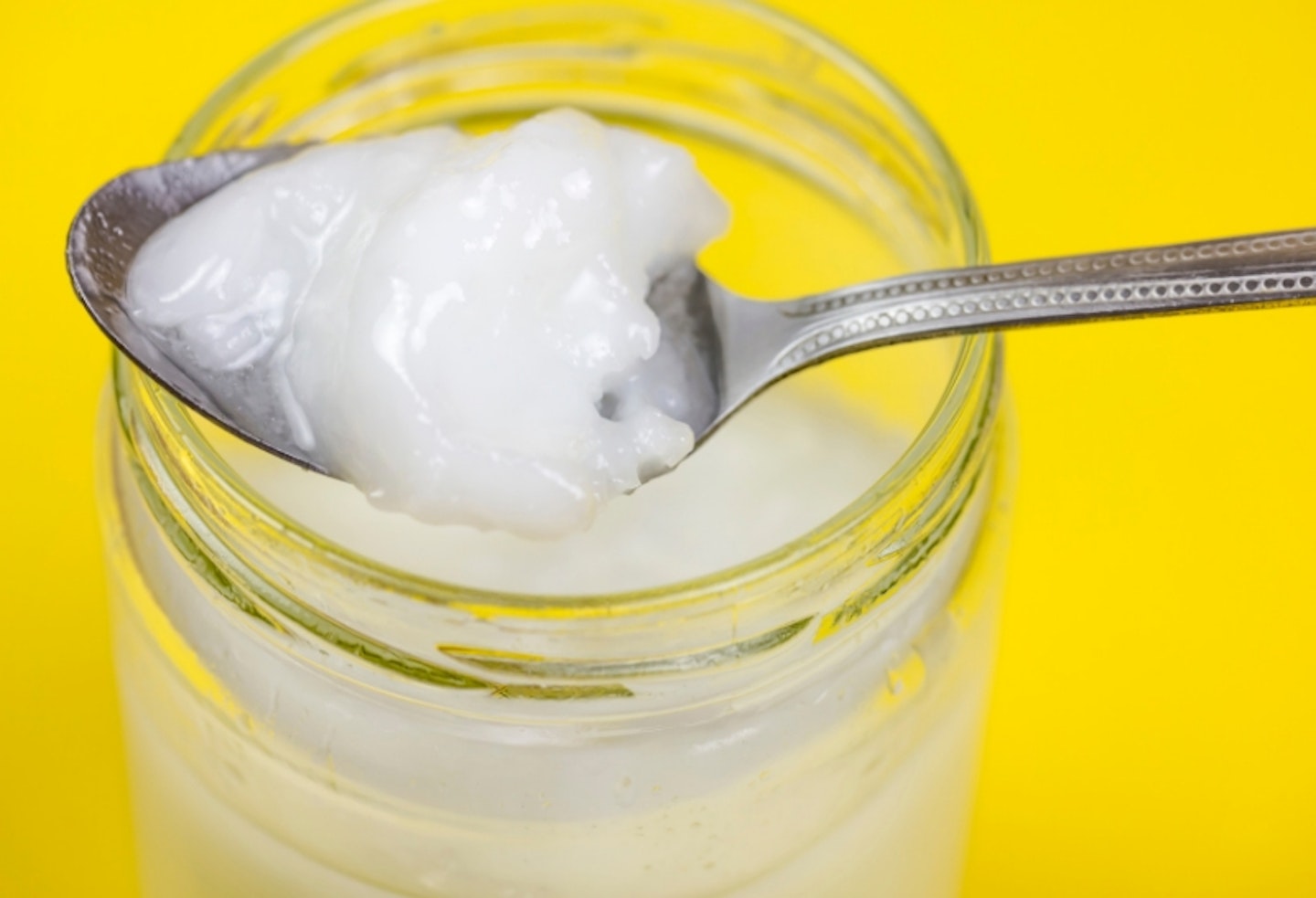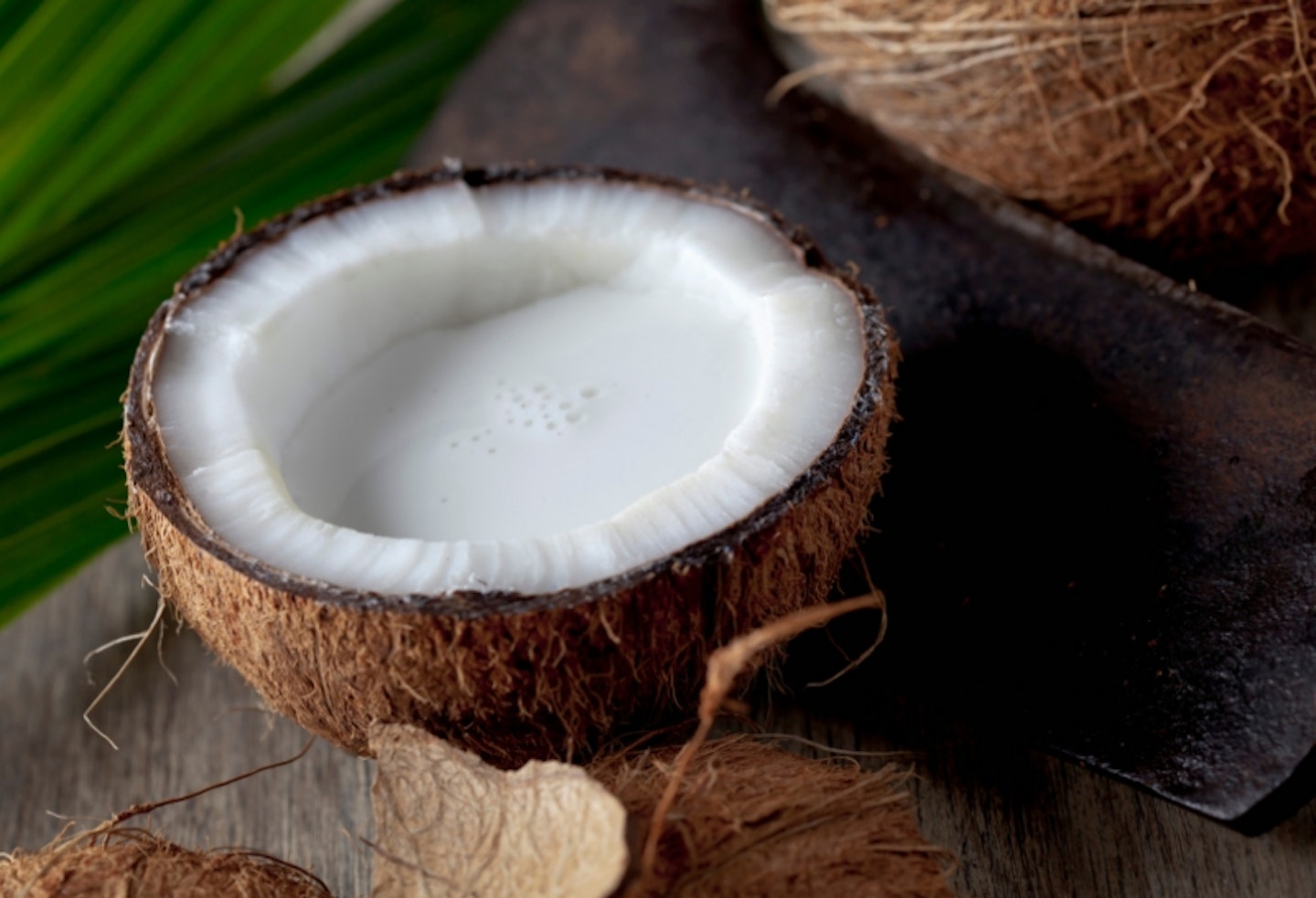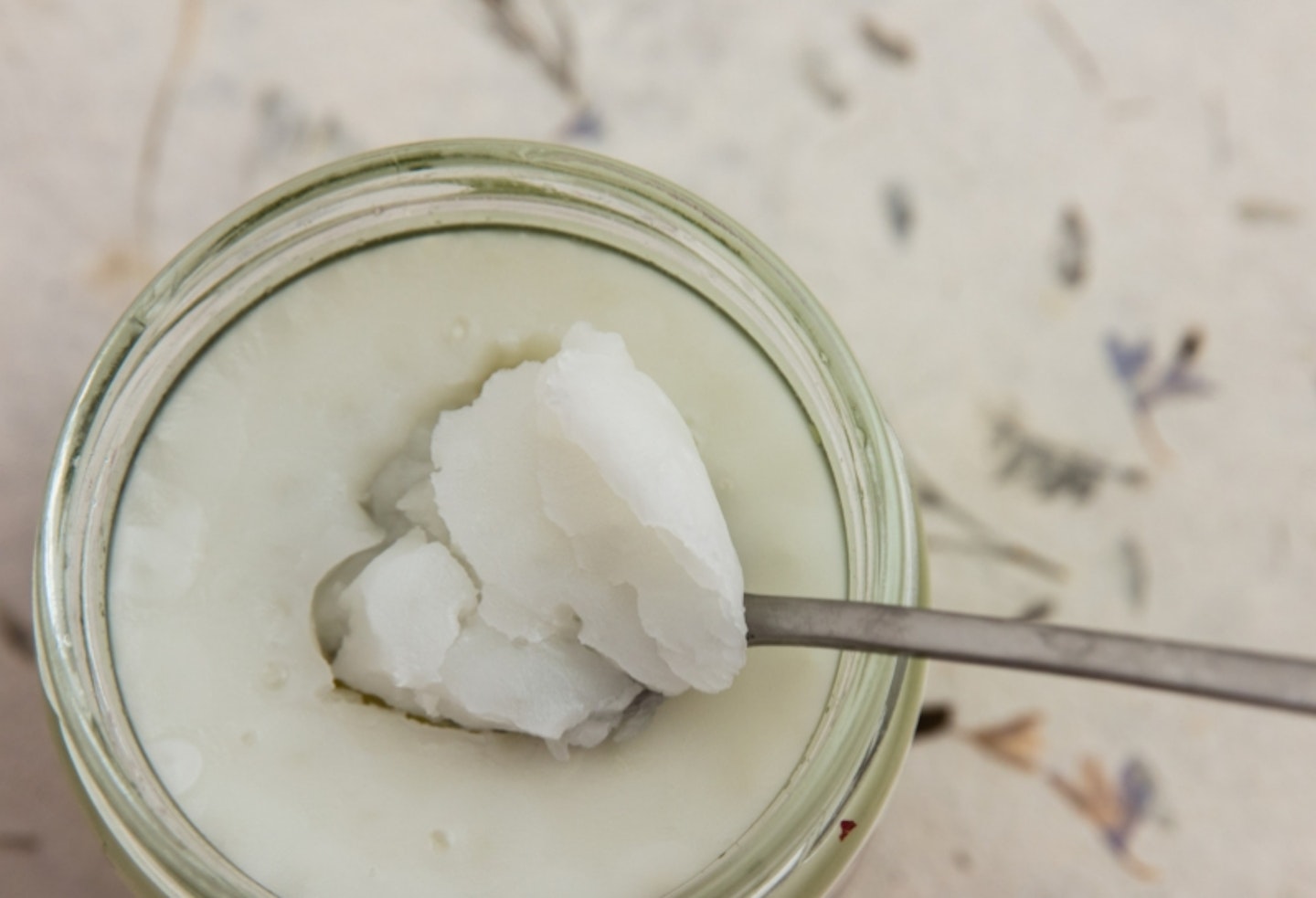It isn’t just delish in a pina colada – a coconut’s natural oil is bursting with health and skin benefits that can solve more than one pregnancy, new mum and baby complaint. And the bonus? It smells incredible. Before long, coconut oil will be your latest beauty obsession.
9 coconut oil benefits:
Coconut oil benefits
 1 of 9
1 of 91) Bursting with goodness
Coconut oil boasts antifungal, antiviral and antibacterial properties that can help prevent colds, flu and other viruses. Having just two tablespoons of the oil a day (in drinks or meals, if you aren’t a fan of the strong taste) could keep your immune system strong during your pregnancy.
 2 of 9
2 of 92) Brilliant source of lauric acid
After breast milk, coconut oil is the second best source of lauric acid – a great and easy way to help strengthen both yours and your baby’s immune system. It’s also thought to help stimulate milk production during breastfeeding. So, drinking a small amount each day when breastfeeding will mean that the goodness of the lauric acid will be directly passed to your baby through your milk.
 3 of 9
3 of 93) A substitute for dairy
Coconut oil is a great alternative if you want to avoid dairy in pregnancy and during breastfeeding. Simply swap butter and milk for their coconut equivalents if you’re worried that your baby has a dairy intolerance that you don’t want to aggravate through your breast milk.
Multi-purpose coconut oil is your key to travelling light. It's a cleanser, moisturiser, hair conditioner, body lotion, aftersun, even shave cream and salve for rashes and scratches. This one is 100% organic and smells like a tropical beach!
 4 of 9
4 of 94) Helps with pregnancy side effects
If you’re struggling with morning sickness, heartburn or constipation, a little coconut oil can help relieve your symptoms. The oil can soothe your stomach and clean the bacteria out of your oesophagus to soothe acid reflux. It’s even suggested for easing the discomfort of vaginal dryness – another delightful side effect of pregnancy.
 5 of 9
5 of 95) Soothes irritation
Rub a little coconut oil onto any itchy or dry areas that may crop up during your pregnancy. Plus, it’s great for soothing sore or cracked nipples while you’re breastfeeding.
 6 of 9
6 of 96) Prevents stretch marks
Lots of women swear by coconut oil as a great way to prevent stretch marks during pregnancy and help fade existing ones post-birth because of its moisturising properties and inclusion of vitamin E. Sign us up.
 7 of 9
7 of 97) Gentle on your baby’s skin
Once your baby arrives, you can use a little coconut oil to treat your her nappy rash and cradle cap. Because it’s completely natural, it’s incredibly gentle on your baby’s skin and shouldn’t irritate her skin at all – but always do a small patch test first.
 8 of 9
8 of 98) Great as a massage oil
A baby massage is a brilliant way to bond with your little one and can help her sleep better. And you don’t need to spend lots on a specific massage oil – a little coconut oil will do the job and will leave her skin soft and smelling delicious.
 9 of 9
9 of 99) Use on dry hair
If you’re battling with a dry scalp (another common pregnancy side effect), then you can apply a little coconut oil to your roots and wash out in the morning for a deep replenishing treatment.
